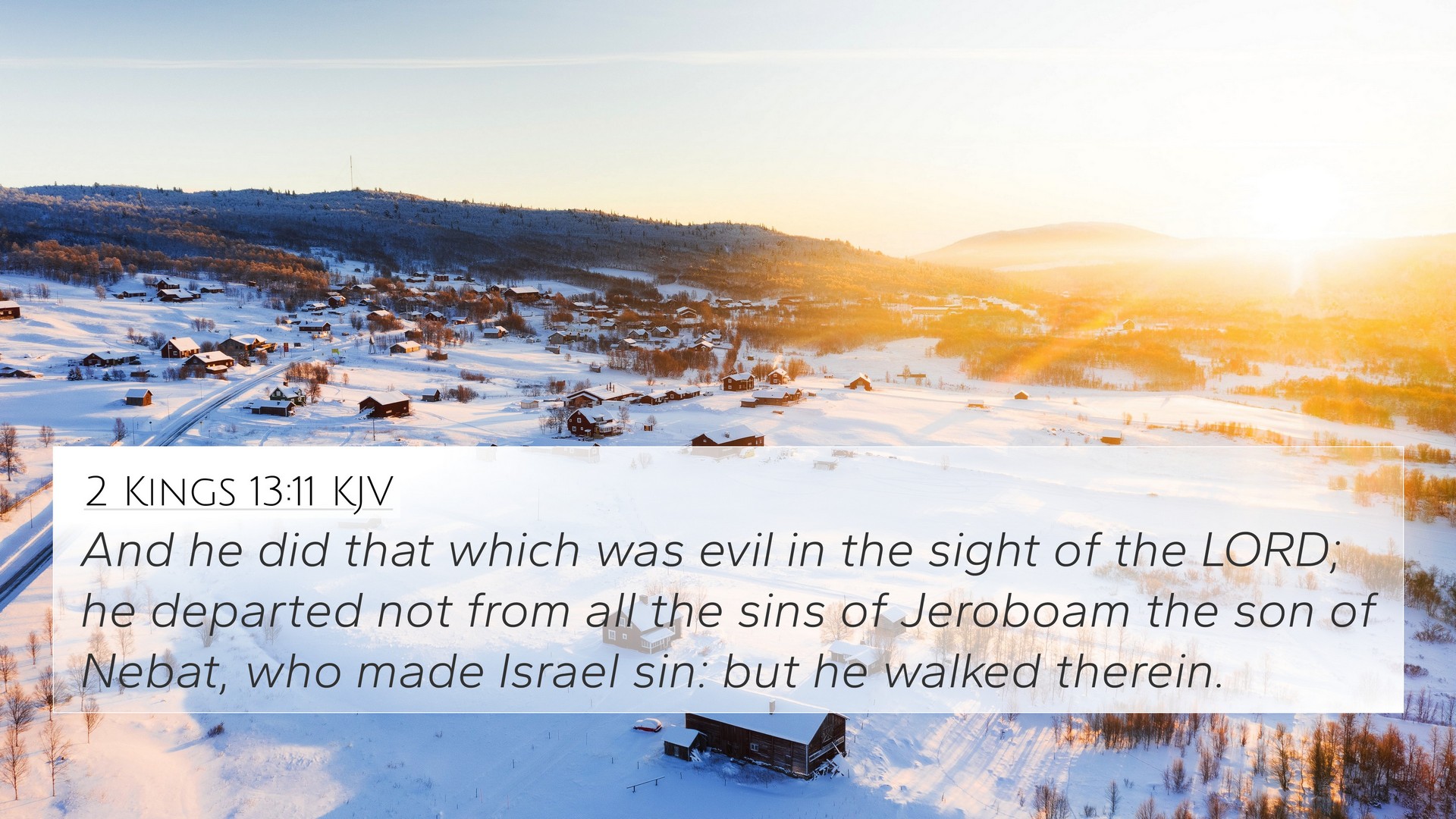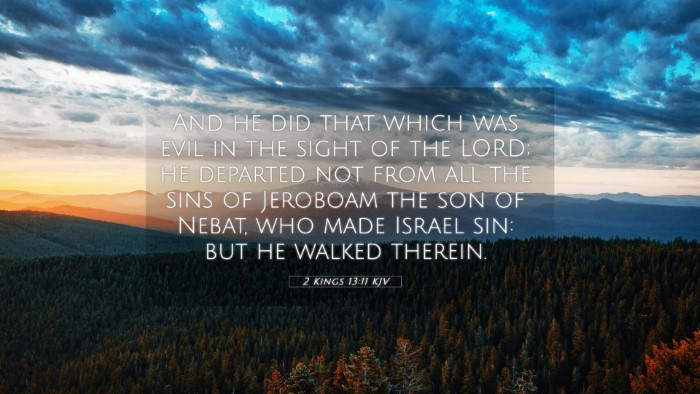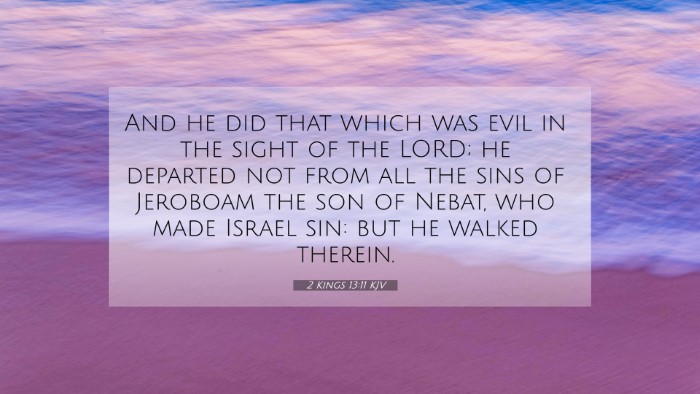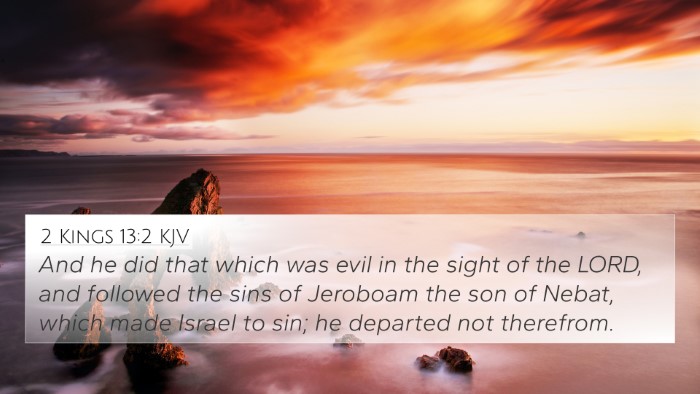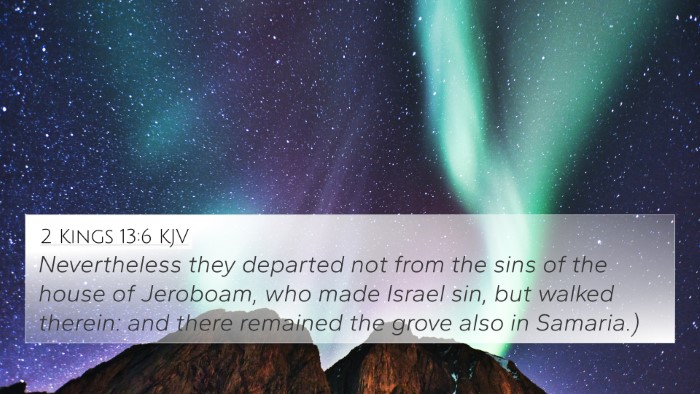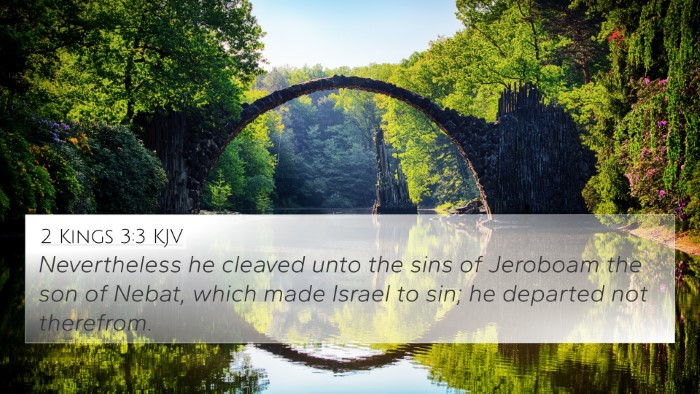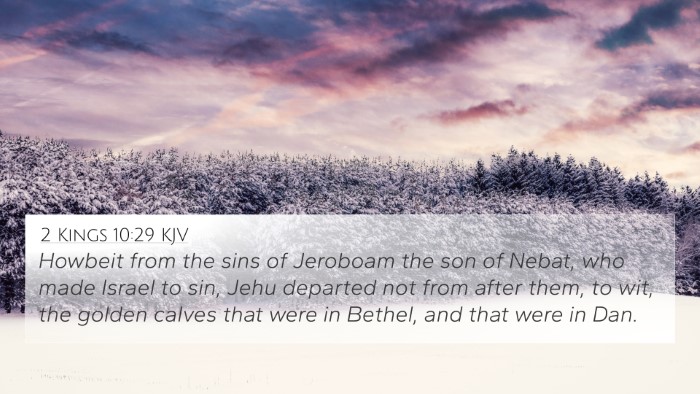Understanding 2 Kings 13:11
This verse states: "And he did that which was evil in the sight of the Lord; he departed not from all the sins of Jeroboam the son of Nebat, who made Israel to sin: but he walked therein."
Summary of 2 Kings 13:11
The verse describes the reign of King Jehoash of Israel, emphasizing his failure to turn from the sins that had plagued his predecessors. His actions are portrayed as a continuation of Israel's historical rebellion against God, particularly the sins established by Jeroboam I.
Insights from Public Domain Commentaries
-
Matthew Henry:
Henry comments on the moral degeneration of Israel’s kings, noting that Jehoash’s reign is marked by a persistent disobedience. He highlights how the choice to follow the sinful pattern of Jeroboam led Israel further away from righteousness.
-
Albert Barnes:
Barnes offers a detailed analysis of the significance of Jehoash’s actions in the context of Israel’s history. He connects the evil deeds of Jehoash to the broader theme of Israel's idolatry and the consequences of ignoring divine commandments.
-
Adam Clarke:
Clarke points out that Jehoash’s failure to repent reflects a lack of spiritual leadership in Israel. He draws attention to the historical context that shapes the king's decisions and emphasizes the divine call for repentance that was repeatedly ignored.
Bible Verse Cross-References
To deepen our understanding of 2 Kings 13:11, we can explore several related scriptures:
- 1 Kings 13:33-34 - Details the sins of Jeroboam that led Israel astray.
- 2 Kings 3:2 - References the sinful legacy in the lineage of Jehoash.
- 2 Kings 14:24 - Continues the narrative of Israel's wickedness under its kings.
- 1 Chronicles 10:13-14 - Discusses how Saul's disobedience led to the Lord's rejection of him.
- Hosea 4:17 - Speaks about Israel's practice of idolatry and the implications of their actions.
- Romans 1:21-23 - Reflects on the universal consequences of turning away from God, paralleling Israel's history.
- Jeremiah 7:24-26 - Describes Israel's obstinacy regarding God’s calls for repentance.
- Hebrews 3:12-13 - Warns against an evil heart of unbelief, which resonates with Israel's historical stubbornness.
- Revelation 3:19 - Discusses divine correction and the need for repentance, applicable to Israel's leaders.
- Galatians 6:7 - Points to the principle of reaping what one sows, reflecting the consequences of sin acted upon by leaders.
Thematic Connections with Other Bible Verses
2 Kings 13:11 connects with various Biblical themes including:
- Idolatry and Disobedience: The recurrent theme throughout the history of Israel, particularly under kings, act as a warning to future generations.
- Leadership Accountability: This verse illustrates the impact of a ruler's choices on the moral state of a nation, a concept further reflected in New Testament teachings.
- God's Call for Repentance: The persistence of God’s prophets calling for repentance amidst systemic sin is a reflection of His enduring mercy.
Cross-Referencing Biblical Texts
For those engaged in a cross-reference Bible study, tools like a Bible concordance or a Bible cross-reference guide may aid in identifying connections. Here’s how to effectively utilize these tools:
- Identify Key Terms: Starting with terms like "sin," "idolatry," or "evil," you can track their occurrences across the scriptures.
- Explore Contexts: Understanding the context surrounding similar terms can unveil deeper thematic connections.
- Utilize Reference Resources: Make use of comprehensive Bible cross-reference materials to link related verses.
Conclusion
2 Kings 13:11 serves as a poignant reminder of the dangers of leadership that strays from righteousness. Through a comparative analysis of related verses and themes, biblical scholars and enthusiasts can gain insight into the narrative of Israel and the overarching message of repentance and obedience.
